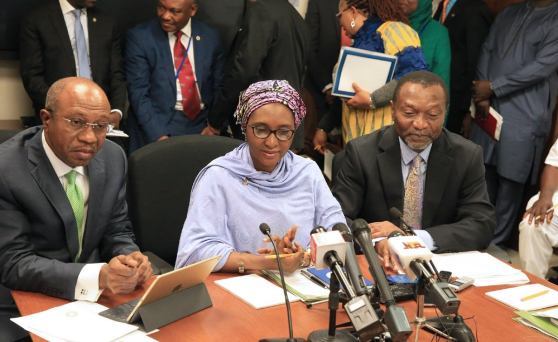There are no products in your shopping cart.
| 0 Items | £0.00 |


NIGERIAN ministers secretly entered into an agreement with the International Monetary Fund (IMF) to increase electricity tariffs across the country as from next year as part of the pact to secure the recent $3.4bn loan to offset the effects of the Covid-19 shutdown.
On April 28, the IMF approved Nigeria's request for a $3.4bn loan to help ameliorate the effects of the economic collapse brought about by the coronavirus pandemic. On April 6, Nigeria's finance minister Zainab Ahmed, had applied for the loan to help fund the government's 2020 budget after doing so from oil proceeds became impossible.
Nigeria's 2020 budget was set at $28.8bn but this was predicated on the country selling 2m barrels of oil at day at a price of $57 a barrel. However, with both prices and demand collapsing, the government has been forced to borrow and it now appears that the IMF attached strict conditions to its lending.
A letter of intent, jointly signed by Mrs Ahmed, and the governor of the Central Bank of Nigeria, Godwin Emefiele, addressed to the IMF managing director, Kristalina Georgieva, indicated that the federal government made a number of promises to the fund in order to secure the financial assistance. One of the promises, or commitments, which the government made is that Nigerians would pay full cost-reflective tariffs for power come 2021.
Apparently, the federal government also told the IMF that it intends to cap electricity tariff shortfalls to N380bn in 2020. On January 4, the Nigerian Electricity Regulatory Commission (NERC) approved an increase in tariffs for the 11 distribution companies in the country but it could not implement the increase after labour unions, lawmakers and the public kicked against the move which would have commenced on April 1, 2020.
However, it appears that the federal government will now force this measure through after the coronavirus pandemic lockdown ends. When the new regime comes into place, customers in Abuja for instance, would end up paying N19.89 more per unit.
In Lagos, the NERC review also showed that Ikeja Electricity Distribution Company, customers on the R3 category who were paying N26.50 per unit, would have paid N36.92 per unit from April 1. This new rate amounted to an additional N10.02 per unit.
Mrs Ahmed and Mr Emefiele's letter to the IMF read: “We are also advancing in our power sector reforms with technical assistance and financial support from the World Bank, including through capping electricity tariff shortfalls this year to N380bn and moving to full cost-reflective tariffs in 2021."
Their letter of intent, dated April 21, also hinted at a further increment in value added tax as part of plans to increase its contribution to state revenue to 15% of gross domestic product (GDP). This planned revenue drive also includes hikes of excise fees and the removal of certain tax exemptions.
Ministers also assured the IMF that they were working to reduce the budget deficit to under 3% of GDP in line with the Fiscal Responsibility Act. In addition, the federal government also assured the IMF that it was committed to eliminating recourse to central bank financing of budget deficits by 2025.